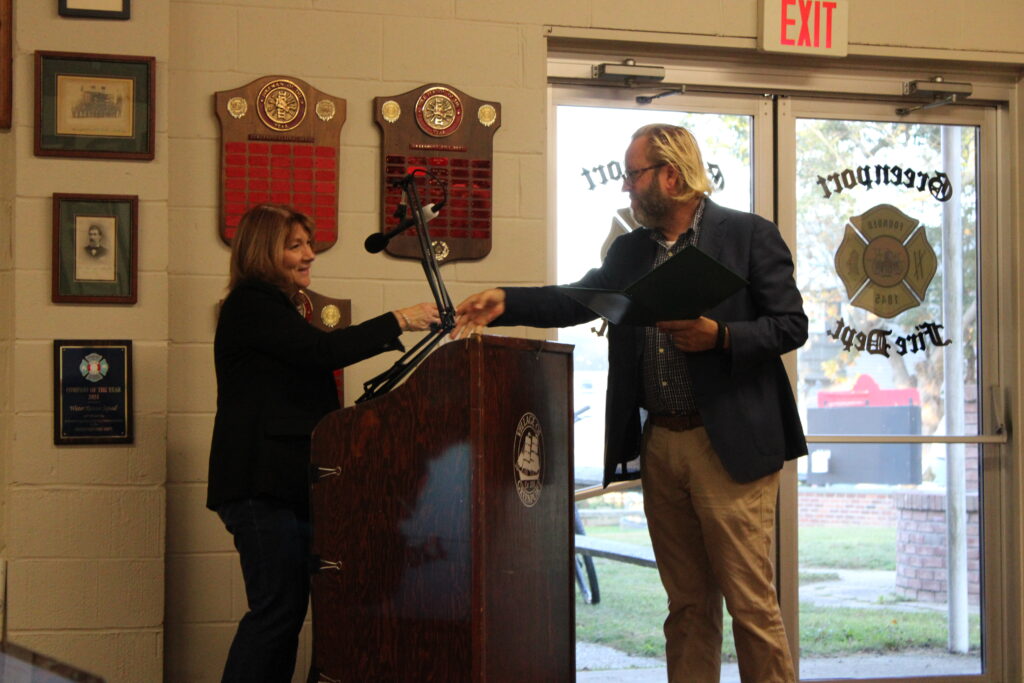Guest Column: How to make resolutions stick

How’s that New Year’s diet going?
What? You had Danish and bacon for breakfast, chicken nuggets and fries for lunch and plan on beers and pizza-with-extra-cheese with the gang for dinner? And who is that evil person who left black-and-white cookies on the kitchen counter? Don’t they know you’ve become a healthy, weight-conscious person?
What happened? Well, take comfort in knowing you’re not alone in making the effort. According to research conducted by Boston Medical Center, 45 million Americans go on a diet every year and spend up to $33 million on magic food and other products that will supposedly make them slim.
The problem with weight is an American plague. According to the National Health and Nutrition Examination Survey, more than two-thirds of U.S. adults are considered overweight or obese. It’s no wonder so many of us are trying to drop a few pounds, but the success rate is abysmal.
As Jackie Gleason (aka, “The Great One” — and not just for his fame) said: “The second day of a diet is always easier than the first. By the second day, you’re off it.”
And for those who stick it out for two weeks or more, and then fall hard for bagels and bacon cheeseburgers, failure can be even more discouraging.
No fun? No gain
New Year’s resolutions on dieting, getting on an exercise program or changing your daily routine in any way can be setting sail in calm waters that quickly turn into stormy seas.
As Dr. Anthonette Desire wrote a few years back in her “The Doctor Is In” column for the Shelter Island Reporter, “I once resolved to attend spin classes. It looked like fun. There I was, in class, in January, in the front row, when the instructor made the side comment that there will be room in the class by February. As factual as that was (that was my last class), how we think about our resolutions can make all the difference.”
Dr. Desire suggests setting “S.M.A.R.T.” goals, as in “choosing to accomplish something that is Specific, Measurable, Achievable, Relevant and Time-bound.”
And with these markers in mind, it’s essential that you take the prison-sentence aspect out of your resolutions. “We develop bad habits because they are enjoyable,” Dr. Desire wrote. “Use enjoyment for something good.” She cited a study that concluded “that contrary to popular belief, only enjoyment predicted long-term persistence. It didn’t matter how important your goal was. Instead, what really mattered was how much pleasure you received from your initial efforts.”
Opening the door for yourself
Columnist Nancy Green, a social worker and a member of the Shelter Island health and wellness committee, looks at January promises to yourself with as cold an eye as Dr. Desire.
“Most New Year’s resolutions dissolve somewhere around Jan. 10,” Ms. Green said. “The gym is very busy that first week of the year, as is Weight Watchers.”
She questions the whole idea of resolutions, because the result of not keeping a promise to yourself can often lead to frustration and humiliation.
But do not abandon all hope, Ms. Green said. “There’s something about New Year’s resolutions that is inherently hopeful,” she added. “The implication is that we will do better, and we will be better. A resolution can denote a real self-improvement vow, such as visit Mom more often, or try to listen better.”
Anything that opens a door to self-reflection is a true gift to yourself, Ms. Green said, “and may be the first step toward positive change. It just needs to survive past January and into the spring to become real.”
Getting serious about dieting
Registered dietitian-nutritionist Rachel Ezelius believes most diets are too complicated and just too difficult. “Like anything, when the change is too extreme, it’s almost impossible to be successful,” she said, offering the example of someone who’s never seriously run suddenly entering a marathon. “It’s unlikely you can go out the next day and run 26.2 miles successfully.”
A crash diet really can lead to a crash, Ms. Ezelius added, so start by giving yourself a good talking-to, and accept that there will be difficult days ahead. Also, seek professional help.
“Let’s say you had a Porsche, but it badly needed work on the engine,” Ms. Ezelius said. “I don’t think you’d YouTube it to try and fix it yourself. Same with your body, which is your most valuable possession.”
Your own best friend
Dori Fortunato is also a skeptic when it comes to New Year’s resolutions. “For most of us, they bring much unnecessary expectation, which inevitably comes with resistance and then ultimate failure to meet our own self-proclaimed goals,” said Ms. Fortunato, who’s written a health and wellness column, “Be well with Dori” for our papers, and is a doctor of acupuncture and herbal studies. “Yet, we all desire to look forward with positivity and create new possibilities.”
She believes in starting small and winnowing down your goals. To improve yourself, find one subtraction in your daily life, one addition and one accomplishment. “You’ll probably find that adding something you desire, automatically down the line subtracts something you no longer want, which will inevitably lead you to new accomplishments.”
Most importantly, Ms. Fortunato advises that you cut yourself some slack. “Don’t analyze or criticize yourself,” she said. “Forgive yourself when you do. Learn to be kind to yourself and your process. If you don’t, who will?”
Okay? Ready? Good luck. And good health in 2025.
Ambrose Clancy is the editor of the Shelter Island Reporter. He can be reached at [email protected].









